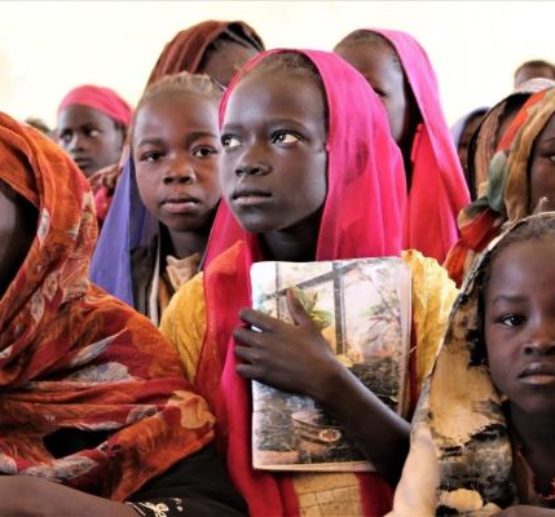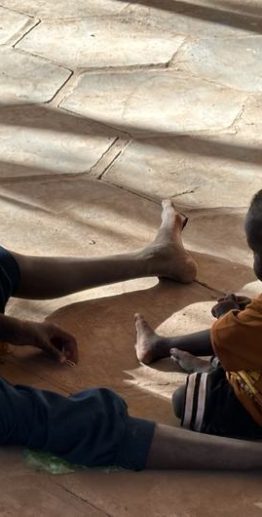Sudanese Government and Rebel Alliances Sign Peace Agreement
DWAG welcomes the signing of the peace agreement between the Sudanese interim government leaders and the opposition groups as a great step toward stability in Sudan and urges the parties and mediators to make an effort to bring onboard non-signatories and put forth accountability measures that will ensure demonstration of political will for implementation. We further call for the prioritization of human security and the protection of civilians in Darfur and other crisis-affected regions as an initial step for peace in Sudan.
On October 3rd, Sudanese government leaders along with crucial members of the Sudanese Revolutionary Front (SRF) gathered at the South Sudanese capital, Juba, to sign a comprehensive peace agreement. With a large international, regional, and local presence in Juba, the signing ceremony on October 3rd has long been anticipated.
Coined by SRF’s Security General as a historic day for Sudan and an end to the war, the peace agreement promises a better reality for the country and a resolution to the conflict. However, implementation of the written policies and procedures leave many weary of the significance of the agreement and whether a notable change will follow through. The absence of the Sudan Liberation Movement (SLM) and the Sudan People’s Liberation Movement-North (SPLM-N) at the signing ceremony also reflect substantial challenges to the peace process.
The peace deal sets out the terms for the start of a transitional period of three years and accentuates fundamental concerns of Sudan’s crises in five central tracks (Darfur, the Two Areas, central Sudan, eastern Sudan, and northern Sudan). After a year of intensive negotiations, the deal includes regional and national inclusion of eight core protocols to be implemented on all five tracks. Addressing issues of the integration of rebels forces into security forces as well as political representation, power-sharing, and economic rights, the agreement acknowledges and attacks root causes of conflict in Sudan, including governance, justice, equality, identity, religion, and land distribution.
According to the security arrangements protocol, a new force of at least 12,000 will be installed in Darfur. Half of the group will consist of the Sudan Armed Forces (SAF), the Rapid Support Forces (RSF), and police and security officers while the other half would consist of former rebels. The force is mandated to enforce civilian protection in conflict-affected regions, which would include Darfur. To address concerns over humanitarian relief, the return of displaced individuals and refugees, compensation, and redevelopment, the agreement proposes autonomy for the Two Areas and restoration of a single Darfur region to allow for a significant reduction of power in conflicted regions and an allocation of resources and aid where needed. On the topic of transitional justice, the Sudanese government also promises to fully cooperate with the International Criminal Court (ICC) for the transfer of the ICC indictees to face trial. Under the power-sharing protocol, 40% of power would be established by members of the Darfur track, 10% would be allocated to movements that signed the agreement, 30% of power to the government, and 20% to the Darfur leaders.
On paper, the peace agreement signifies a great deal of progress for the Sudanese people as concerns of fundamental issues of civilian security, justice, and representation appear to ultimately be acknowledged and confronted by the Sudanese government. However, the execution of policies will be gradual and challenging for Sudan. DWAG, and many others, remain skeptical of the peace agreement and the absence of the two powerful rebel groups reinforce the uncertainty that will ensue the signing ceremony. With a history of signing partial deals, Sudan often lacked the political resolve and commitment to materialize its policies towards peace-keeping and implement them on the ground.
For the millions still living in displacement and refugee camps, peace is not simply an agreement between leaders and celebration but the recognition of and commitment to their safety and security. It is the restoration of their stolen land, a sense of justice against their struggles with lawlessness, and a guarantee of their safe return to their lands of origin.
DWAG, therefore, calls on all parties to ensure that peace must be inclusive and responsive to the needs and aspirations of the affected communities. We further call on all parties to allow for a detailed step-by-step plan for capacity-building and an increase in the participation of women on all levels of decision-making pertaining to peace agreements, their implementation, and the interim process.
We call on the international community and the regional actors overseeing the peace process in Sudan to ensure that peace must be inclusive and accountability measures must be put in place to hold all parties accountable if they fail to implement the agreement.
We further call on the Sudanese interim government as well as the regional and international stakeholders to make an effort to bring both the Sudanese Liberation Movement — the largest Darfuri opposition group, led by Abdel Wahid El Nur — and Abdelaziz Al-Hilu of Nuba Mountains to address their concerns, respond to their demands and retrieve their signatures to ensure that peace and security arrangements are complete, comprehensive, and sustainable.



